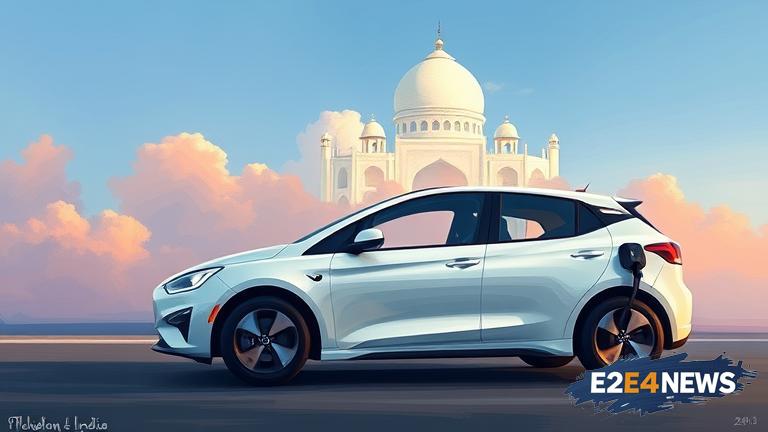The Indian government has announced a comprehensive plan to promote the adoption of electric vehicles (EVs) in the country. The plan includes a range of incentives and initiatives aimed at encouraging the use of EVs, reducing greenhouse gas emissions, and improving air quality. According to reports, the government plans to offer subsidies to EV manufacturers, as well as to consumers who purchase EVs. The subsidies will be provided through the Faster Adoption and Manufacturing of Electric Vehicles (FAME) scheme, which was launched in 2015. The government has also announced plans to develop EV charging infrastructure across the country, with a focus on major cities and highways. The plan includes the installation of EV charging stations at regular intervals, making it easier for EV owners to charge their vehicles on the go. Additionally, the government has announced plans to promote the use of EVs in public transportation, with a focus on electric buses and taxis. The plan also includes initiatives to encourage the adoption of EVs in the private sector, such as tax incentives and low-interest loans. The government has set a target of having at least 30% of new vehicle sales be electric by 2030. To achieve this target, the government plans to invest heavily in EV infrastructure, including charging stations and manufacturing facilities. The plan has been welcomed by the automotive industry, with many manufacturers expressing their support for the government’s initiatives. The adoption of EVs is expected to have a significant impact on the environment, with reduced greenhouse gas emissions and improved air quality. The plan is also expected to create new job opportunities in the EV sector, with the government estimating that the industry will create thousands of new jobs in the coming years. The government has also announced plans to develop a comprehensive policy framework to support the growth of the EV industry. The framework will include regulations and standards for EV manufacturing, as well as incentives for companies that invest in EV technology. The plan has been praised by environmentalists, who say that it is a major step forward in reducing India’s carbon footprint. However, some critics have expressed concerns about the plan’s feasibility, citing the high cost of EVs and the lack of charging infrastructure in some parts of the country. Despite these challenges, the government remains committed to its goal of promoting the adoption of EVs, and has announced plans to review and revise the plan as necessary. The adoption of EVs is expected to have a significant impact on the Indian economy, with the government estimating that the industry will be worth billions of dollars in the coming years. The plan is also expected to improve the country’s energy security, by reducing its dependence on fossil fuels. Overall, the government’s plan to promote the adoption of EVs is a major step forward in reducing India’s carbon footprint and improving air quality. With the right incentives and infrastructure in place, the country is poised to become a leader in the EV industry, and to reap the economic and environmental benefits that come with it. The plan is a testament to the government’s commitment to reducing greenhouse gas emissions and promoting sustainable development. As the country continues to grow and develop, the adoption of EVs is expected to play an increasingly important role in reducing its environmental impact. The government’s plan is a major step forward in this effort, and is expected to have a lasting impact on the country’s environment and economy. The plan has been welcomed by the public, with many citizens expressing their support for the government’s initiatives. The adoption of EVs is expected to improve the quality of life for citizens, by reducing air pollution and improving public health. The plan is also expected to create new opportunities for businesses and entrepreneurs, who will be able to take advantage of the growing demand for EVs and EV-related services. As the country moves forward with its plan to promote the adoption of EVs, it is clear that the future of transportation in India is electric.
